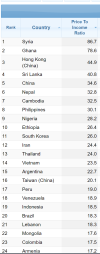You are talking about BANK and LOAN, all loans are going to be liquid asset, you can't lend, say a house, to the investor. First of all, 900 billions bond is peanuts. it won't be able to support even one blue chip banks operation, which is into trillions. You are talking about the support of national loan. Second of all, you can't liquidate bond unless you have a buyer. You don't just go and present your bond to the issuer and exchange your money, they either have to buy back ot have someone else buy it off you.
Second, you cannot exchange FOREX into liquid asset. And Forex is not for loaning people money, they are to balance your own currency, curb inflation and so on, I don't know what they teach you in Chinese Economy....
LOL. QE is not printing money recklessly, it used to purchase asset, which is more or less equal to nationalising asset. They still have to sell those assets in which the 700 billion raise thru QE has been able to add 8 trillion assets.
The Federal Reserve Board of Governors in Washington DC.
www.federalreserve.gov
And lol, again, you have zero concept of money flow. Money is taken out of circulation once they were deposited into the bank because once they are in the bank account receivable, it turns into debt to the bank because they will use those money to invest and growth their account, you can't technically take out those money unless the investment is matured. If everyone goes to withdraw money in the same bank at the same time, that bank will not have enough money to give back to all the depositor.
And finally, your "Problem" for inflation is not as serious as the US is because of capital control policy, mind you that difference aren't really that big, Chinese inflation rate in 2022 is 3% while US is 4%. If this is the case, it still mean it was serious enough because you still can't curb the inflation to 0.8 or 0.9 the year before.
China's consumer inflation rose to a 29-month high in September, driven mainly by pork prices, but price pressures remain largely benign in an economy hobbled by strict COVID-19 curbs and a property crisis.

www.reuters.com
Inflation Rate in the United States decreased to 2.80 percent in February from 3 percent in January of 2025. This page provides - United States Inflation Rate - actual values, historical data, forecast, chart, statistics, economic calendar and news.

tradingeconomics.com
















